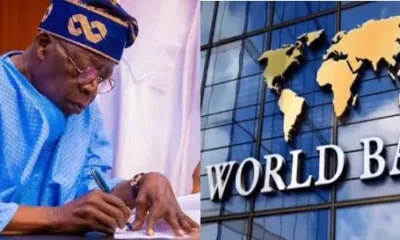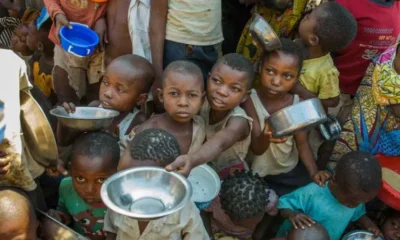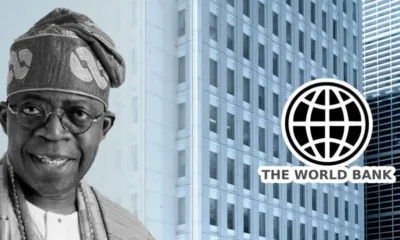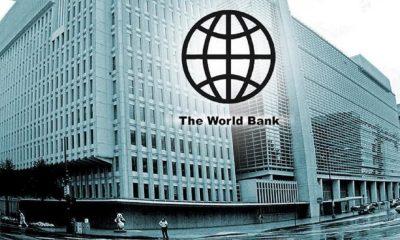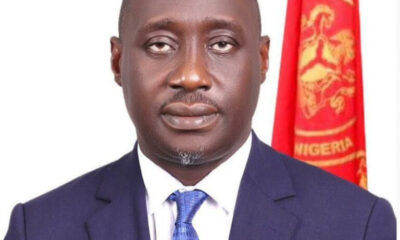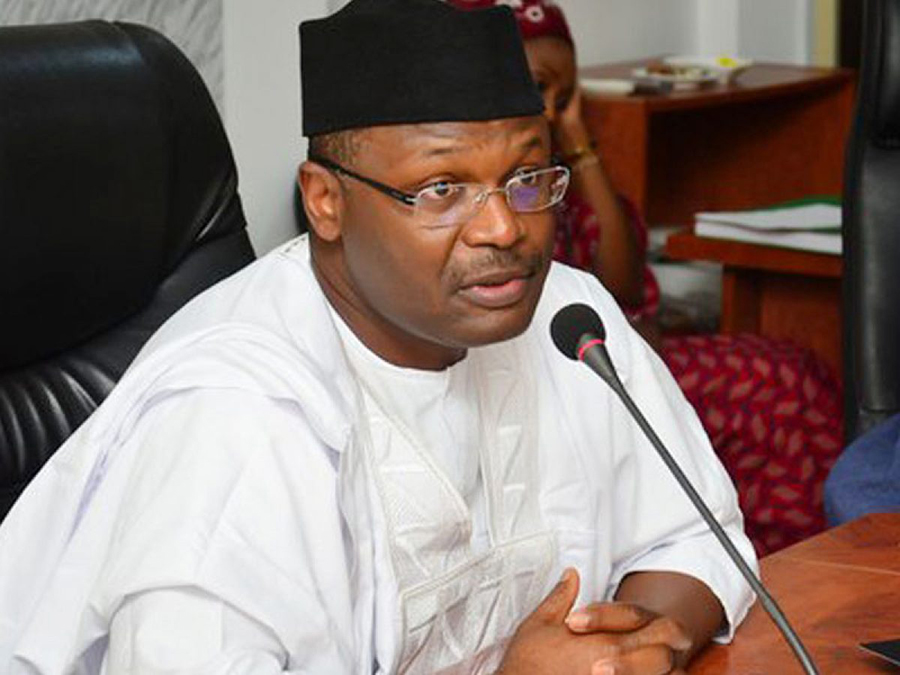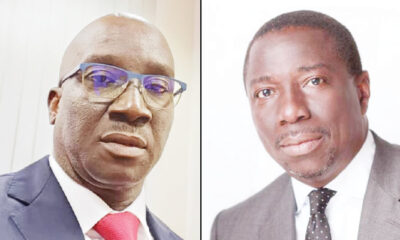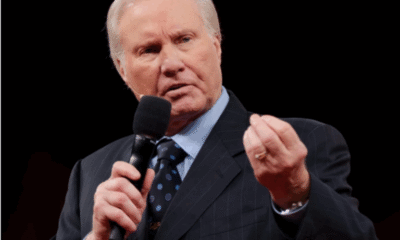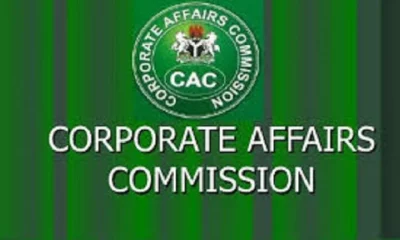Business
Nigeria’s Economic Growth Too Slow To Reduce Poverty – World Bank
Published
2 years agoon
By
Editor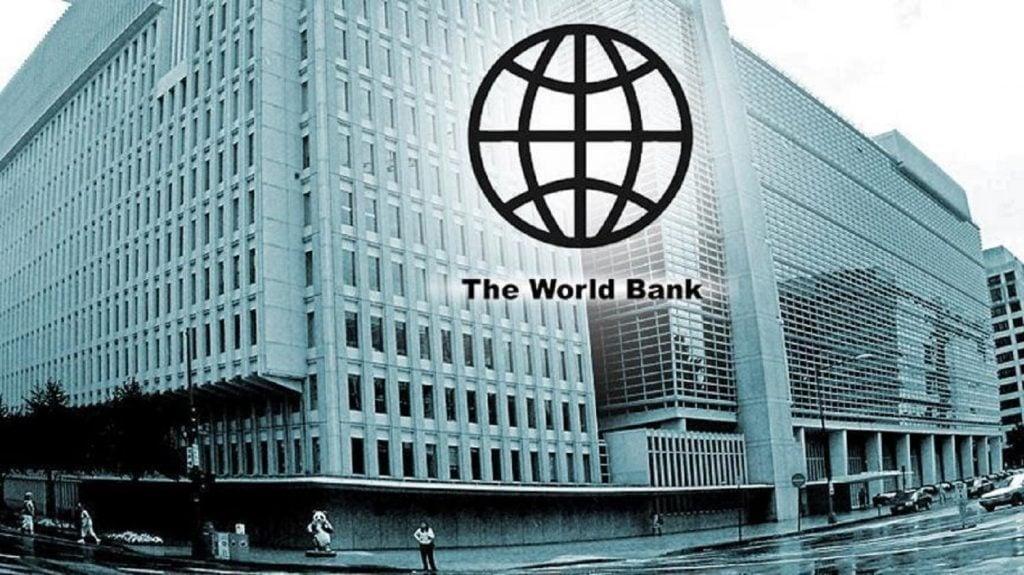
The World Bank has warned that Nigeria’s economic growth is too slow to address the challenge of extreme poverty in the country.
Meanwhile, the bank has retained its economic growth (Gross Domestic Product, GDP) forecast of 2.8% for Nigeria in 2023, citing challenges of high inflation, foreign exchange shortages, and shortages of banknotes caused by currency redesign.
The World Bank gave the warning in the Global Development Prospect report for June 2023.
Among other things, the bank downgraded its economic growth forecast for Sub Saharan Africa to 3.2% for 2023, from 3.4% projected in its April World Economic Outlook. It also projected that global economic growth will slow to 2.1% in 2023, with prospects clouded by financial risks.
READ ALSO: Nigeria’s Borrowing From World Bank Hits $14.34bn In Q1 – Report
The World Bank stated: “After growing 3.1 percent last year, the global economy is set to slow substantially in 2023 to 2.1 percent, amid continued monetary policy tightening to rein in high inflation, before a tepid recovery in 2024, to 2.4 percent.
“Growth in Sub-Saharan Africa (SSA) continued to decelerate earlier this year owing to various country-specific challenges and heightened external economic headwinds.
“Growth in the three largest SSA economies – Nigeria, South Africa and Angola – slowed to 2.8 percent in 2022 and continued to weaken in the first half of this year. In Angola and Nigeria – SSA’s largest oil producers – the growth momentum has stalled amid lower energy prices and stagnant oil production.
“The post-pandemic rebound in Nigeria’s non-oil sector cooled earlier this year because of persistently high inflation, foreign exchange shortages, and shortages of banknotes caused by currency redesign.
READ ALSO: FG Gets $800m World Bank Grant For Subsidy Palliatives
“Growth in SSA is expected to decline further to 3.2 percent in 2023 before picking up to 3.9 percent in 2024. The recovery in South Africa is projected to slow to 0.3 percent this year as widespread power outages weigh heavily on activity and contribute to the persistence of inflation.
“Growth in Nigeria is expected to remain barely above the population growth – far slower than needed to make significant inroads into mitigating extreme poverty.
“Outlook downgrades, however, extend beyond the major regional economies with elevated cost of living restraining private consumption and tighter policies holding back a pickup in investment in many countries.
“More broadly, worsened domestic vulnerabilities together with tight global financial conditions and weak global growth are expected to keep recoveries subdued.”
You may like


World Bank Lists Nigeria Among 39 Nations Facing Rising Poverty, Hunger


Nigeria’s Public Debt Rises To N149trn


Outrage Over World Bank’s Report On Poverty In Nigeria


World Bank Expresses Concern Over Nigeria’s Data, Statistics Quality


FG Seeks Fresh $580m W’Bank Loans


W’Bank Bans Two Nigerian Companies, CEO Over Alleged Fraud

The Naira experienced a slight depreciation on Friday at the official market, trading at N1,528.56 to the dollar.
Data obtained from the website of the Central Bank of Nigeria (CBN) showed that the Naira lost N2.73.
This represents a 0.17 percent loss compared to the N1,525.82 recorded on Thursday.
READ ALSO:Naira Appreciates At Official Market
The Naira, which opened the week on Monday with a gain of N9.52 against the dollar, held steady gains until Thursday.
On Wednesday, the local currency gained N3.42 against the dollar and received commendation from the International Monetary Fund (IMF).
The IMF, in its 2025 Article IV Consultation report on Nigeria, commended the CBN for its reforms to the foreign exchange market, which supported price discovery and liquidity.
Business
JUST IN: Dangote Refinery Hikes Petrol Ex-depot Price
Published
2 weeks agoon
June 20, 2025By
Editor
Nigerians may soon pay more for petrol as the Dangote Petroleum Refinery on Friday increased its ex-depot price for Premium Motor Spirit to N880 per litre, raising fresh concerns over fuel affordability and price volatility in the downstream sector.
Checks on petroleumprice.ng, a platform tracking daily product prices, and a Pro Forma Invoice seen by The PUNCH confirmed the hike, representing a N55 increase from the previous rate of N825 per litre.
The increment would ripple across the entire fuel distribution chain, likely pushing pump prices above N900/litre in some parts of the country, especially in areas far from the distribution hubs.
The hike comes despite global crude prices falling. Brent crude dipped by 3.02% to $76.47, WTI fell to $74.93, and Murban dropped to $76.97 on Friday. The decline in benchmarks offers little relief due to persistent fears of sudden supply disruptions.
READ ALSO: JUST IN: Dangote Refinery Sashes Petrol Gantry Price
The refinery has increased its reliance on imported U.S. crude and operational costs amid exchange rate instability, which adds to its pricing pressure.
On Thursday, the President of the Dangote Group, Aliko Dangote, said his 650,000-barrel capacity refinery is “increasingly” relying on the United States for crude oil.
This came as findings showed that the Dangote Petroleum Refinery is projected to import a total of 17.65 million barrels of crude oil between April and July 2025, beginning with about 3.65 million barrels already delivered in the past two months, amid ongoing allocations under the Federal Government’s naira-for-crude policy.
Dangote informed the Technical Committee of the One-Stop Shop for the sale of crude and refined products in naira initiative that the refinery was still battling crude shortages, which had led it to resort to imports from the United States.
READ ALSO:Dangote Stops Petrol Sale In Naira, Gives Condition For Resumption
On Monday, the president of the Petroleum and Natural Gas Senior Staff Association of Nigeria, Festus Osifo, accused oil marketers of exploiting Nigerians through inflated petrol prices, insisting that the current pump price of PMS should range between N700 and N750 per litre.
He criticised the disparity between falling global crude oil prices and the stagnant retail price of petrol in Nigeria.
“If you go online and check the PLAT cost per cubic metre of PMS, convert that to litres and then to our Naira, you will see that with crude at around $60 per barrel, petrol should be retailing between N700 and N750 per litre.”
He asserted that if Nigerians bear the brunt of higher fuel costs, they should be allowed to enjoy the benefit of low pricing.
His forecast of increased costs now appears spot on, considering the latest developments.
Marketers are already adjusting. Depot owners and fuel distributors in Lagos and other cities anticipate a domino effect, with new price bands expected to follow Dangote’s lead.
Many had held back pricing decisions since Tuesday, when the refinery halted sales and withheld fresh PFIs. The delay fueled speculation, allowing opportunistic price hikes across various depots.

The Naira, which has seen steady appreciation against the Dollar all week, closed stronger on Friday, trading at ₦1,580.44 in the official forex market.
Data from the Central Bank of Nigeria’s website show the Naira gained ₦4.51k against the Dollar on Friday alone.
This marks a 0.28 per cent appreciation from Thursday’s closing rate of ₦1,584.95 in the official foreign exchange window.
The local currency maintained consistent strength throughout the week, recording gains daily.
READ ALSO: Naira Appreciates Against Dollar At Foreign Exchange Market
On Monday, May 19, it traded at ₦1,598.68; on Tuesday, at ₦1,590.45; and on Wednesday, at ₦1,584.49.
These gains suggest increased investor confidence and improved forex supply, contributing to the naira’s performance.
Meanwhile, the CBN, at its 300th Monetary Policy Committee meeting held Monday and Tuesday, retained the Monetary Policy Rate at 27.5 per cent.
- Osun Monarchs Donate Air-conditioners, Computers To Support NUJ’s E-Library Project
- Man Seeks End Of 16 Years Wedlock For Lack Of Love
- Coalition: Why Tinubu Must Not Sleep —Primate Ayodele
- My Wife Goes Clubbing At Will, Cares Less That She’s Childless, Man Tells Court
- I Ran For My Dear Life After My Wife Threatened To Bathe Me With Acid — Husband
- My Husband Leaves Home Whenever We Have Misunderstanding, Woman Tells Court
- 2Face Controversy: Family, Friends Speak Out Amid Apology Backlash
- Burna Boy Turns 34, Reveals Plans To Start A Family
- Cultism: Edo Police Arrest Suspected Killer Of Three Vigilantes, 15 Others
- My Wife Abandoned Me, Deserted Home For Three Months —Husband
About Us
Trending

 Sports2 days ago
Sports2 days agoBREAKING: Liverpool Star Diogo Jota Is Dead

 News4 days ago
News4 days agoSenator Withdraws From Legislative Duties Over Health Challenge

 Politics4 days ago
Politics4 days agoINEC Unveils 2025-2026 Election Timetable, Resumes Voter Registration

 Headline4 days ago
Headline4 days agoUS-based Lawyer Becomes First Nigerian To Travel To Space

 Politics3 days ago
Politics3 days agoEdo: S’Court Reserves Verdict On Ighodalo’s Case Against Okpebholo

 Headline4 days ago
Headline4 days agoTelevangelist, Jimmy Swaggart, Is Dead

 Metro4 days ago
Metro4 days agoCleric Jailed 53 years For Sexually Assaulting 14-year-old Daughter

 Headline3 days ago
Headline3 days agoAU Helicopter Crashes In Somali Capital – State Media

 Metro3 days ago
Metro3 days agoControversy Over Pregnant Woman Buried Alive In Edo

 News4 days ago
News4 days agoCAC Unveils AI-powered Portal For 30-minute Company Registrations
